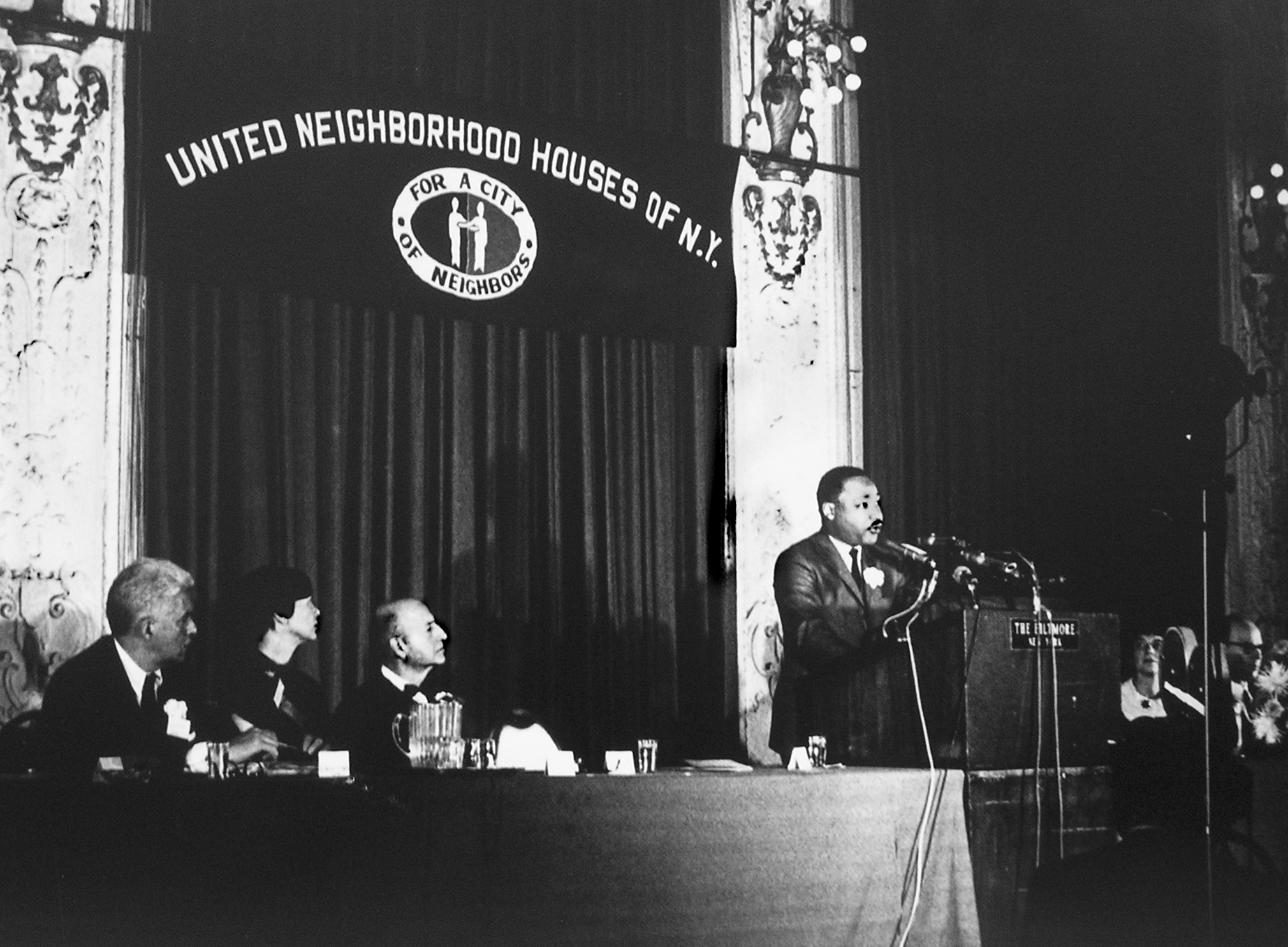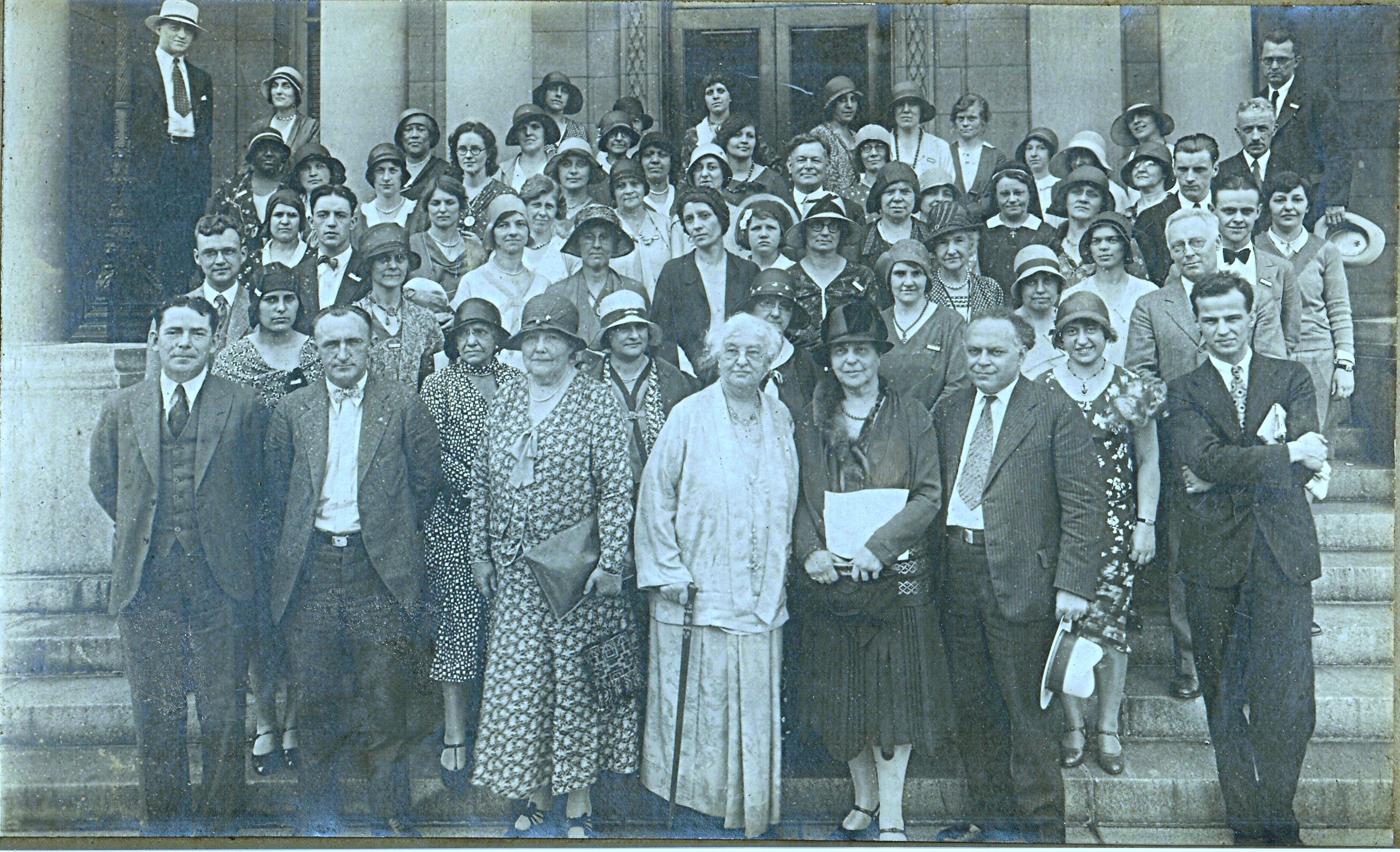In the late 19th century, progressive reformers started a movement that continues to shape nearly every facet of life in New York City. The founders of the settlement house movement rejected the prevailing narrative of the time, that poverty was a symptom of an individual’s moral failings. Instead, they believed that poverty was a societal failure. Their solution was to move to and work in poor neighborhoods, supporting and organizing their neighbors, working together to address poverty both at the individual and societal level.
The settlement house movement in New York began on the Lower East Side in 1886, then spread quickly across a city that was in desperate need of solutions to rampant poverty and income inequality. With tens of thousands of immigrants coming to the city in search of opportunity, the settlements developed a particular focus on helping them adapt to an entirely new environment and engage in civic life. By 1900, there were 15 settlements running education and social service programs and advocating for progressive policy reform.
Settlement house workers quickly realized that–while they had developed strong influence in their respective communities–power to make systemic change would require collective action. To expand their influence, New York’s 15 settlement houses came together in 1900 to form the Association of Neighborhood Workers, now known as United Neighborhood Houses. These settlement houses committed to work together to effect cooperation, “among those who are working for neighborhood and civic improvement, and to promote movements for social progress.”

By 1919, New York’s settlement house movement was 30 strong, all working together as United Neighborhood Houses to bring opportunity to, organize, and empower their communities. As a movement, settlement houses saw policy as a tool to address the quality-of-life concerns they were experiencing in their day-to-day work. They coordinated their efforts with New Yorkers of all economic circumstances, and shared resources and policy ideas to inform effective campaigns at the federal, state, and city level.
In their communities, settlement houses established New York’s first kindergartens, opened the city’s first public playgrounds, founded music and arts programs in immigrant communities that celebrated cultural diversity, and initiated first-of-their-kind services for the poor and home-bound including the Visiting Nurse Service, health clinics, and healthy food distribution.
United Neighborhood Houses then leveraged the settlement houses’ first-hand knowledge of New York’s low-income and immigrant communities to develop policy solutions to the most pressing issues that they fought for and won, including housing protections, labor protections, women’s suffrage, and social welfare programs.
Today, United Neighborhood Houses has active members across New York State. Settlement houses continue to build strong communities, reaching more than 800,000 New Yorkers each year. The settlement house movement plays an active role responding to all varieties of challenges, from politics to natural disasters. True to their roots, settlement houses have been quick to respond as several waves of asylum seekers have moved to New York in search of safety and opportunity, both with programs to support new arrivals as well as policy solutions to help them learn English and find jobs.

Settlement houses remain a gathering place for their local community to identify shared issues and develop solutions. Civic engagement is core to this movement, with settlement houses helping neighbors register to vote and learn how to work the levers of change to better their communities.
Next year will mark 125 years since the settlement houses first came together to align their work and values as a collective, and while the tools United Neighborhood Houses use to do our work have evolved over the years, our core values remain the same as when we were founded by our members so many years ago. In their communities, settlement houses serve their neighbors of all ages, and United Neighborhood Houses coordinates the movement’s collective fights for policies that enable a sense of belonging, efficacy, and possibility for all New Yorkers.



